MAY
The second Learning, Teaching and Training Activity had been planned to be held in Adana, Turkey but because of the political situation we decided to postpone it and have the meeting in Greece instead.
In Greece all the participating schools' representatives were present - again in greater number and for a longer period of time then had been planned.
The Greek school's pupils had been involved in the preparations a lot before our arrival - they collected information on the participating countries, prepared posters and collected words for our 'ININPRO' vocabulary.

They guided the foreign teachers through the school and answered the questions. They presented some cultural events for the guests at a very high level. They were enthusiastic and helpful.
Our timetabled schedule was rich in educational experiences such as lesson observations, job shadowing, book looks and a conference.
During the lesson observations we could see a variety of subjects e.g.: Drama, English, History and Maths. Following the lessons we could discuss and compare them to our own curriculum and teaching methodologies
.
This time the Spanish teachers taught a Spanish lesson to the Greek children who had no previous knowledge in Spanish. It was good to see how enthusiastic they were and how much they enjoyed the different tasks and activities in Spanish. Some new, challenging methods were tried out and in this way the variety of our 'ININPRO' methodology file activities were broaden and a short film was prepared for the tutorial resource

The conference was held in the ancient place venue in Olympia, it gave a special background to our meeting. We were fortunate enough to have three guest speakers who shared good practices and the current Greek methodology when teaching English as an additional language. The project coordinator started the conference by providing a insight of the ?Here We Come ININPRO? methodology to the Greek speakers, in order for the final group discussion to be led with a focus on how the methodology could have an impact on the issues discussed.
This included: Mr Dimitrios Alexopoulos - "The importance of English as a foreign language to young learners?, Mrs Marianthi Kotadaki - ?Teaching English to young learners in Greece: needs and developments? and Mr Nikos Manesis - ?Teacher?s role in school integration of Roma students?. Following the three individual seminars we were invited for an open discussion. Here all representatives were able to compare their current education system and difficulties. This allowed all countries to consider applying strategies introduced by the three guest speakers who have also sent their presentations to the individual schools - here each country will provide training to their school by sharing the information gathered from the conference in Olympia.
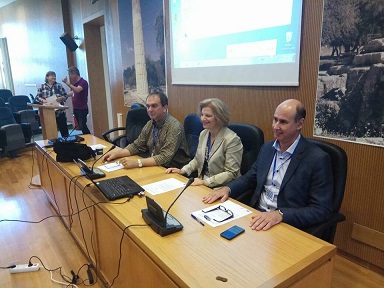
During the evaluation sessions we discussed the project results we had had so far and the difficulties we faced (some technical problems occurred with our web-site and couldn't upload the materials but the Greek partners were able to solve the problem), we sorted out the tasks until our next meeting in Lithuania, the ways of dissemination (teacher trainings in the participating countries, taking part in conferences and advertise our 'ININPRO' method. We discussed the guidelines of our progress report as well.
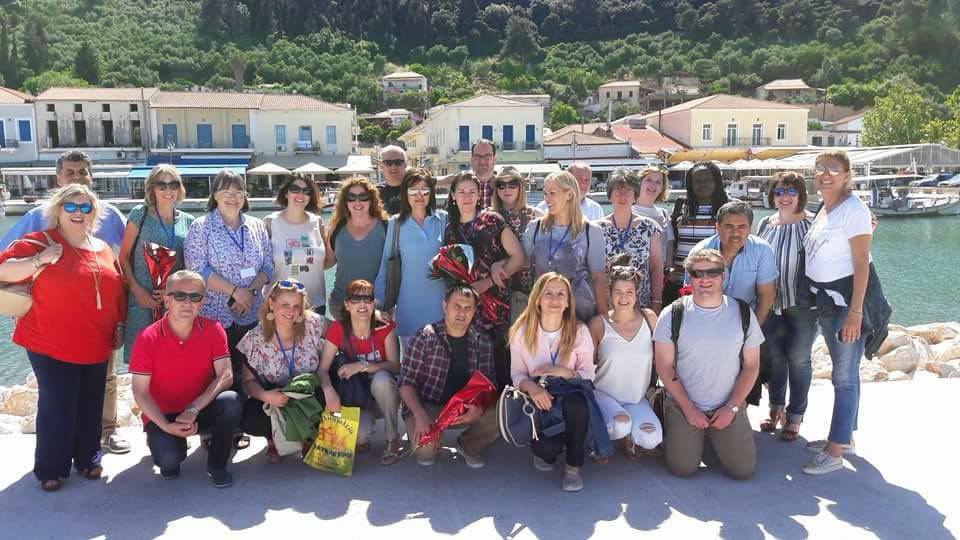
Greece was the hosting country during the second Learning, Teaching and Training Activity that took place in Pyrgos- Peloponnese between May the 17th and May the 24th and 19 guests from five countries took part in it.
On their arrival, our colleagues visited the Parthenon and the archaeological museum of the Acropolis.
We then hosted them in our town Pyrgos where they met our fellow colleagues, attended lessons both in Greek and in English language and interacted with the pupils.
There was also a conference on Language Teaching in Ancient Olympia and a visit both to the museum and the archaeological site, there.
In the framework of our programme, the Spanish team taught Spanish to the fifth graders (the pupils had never been taught Spanish before). The words they had to recognize were either English words similar to their Spanish equivalents (e.g. domino, theatre etc.) or international English words (e.g. panda hippo etc.). The pupils were able to understand the words; they had fun and enjoyed it very much.
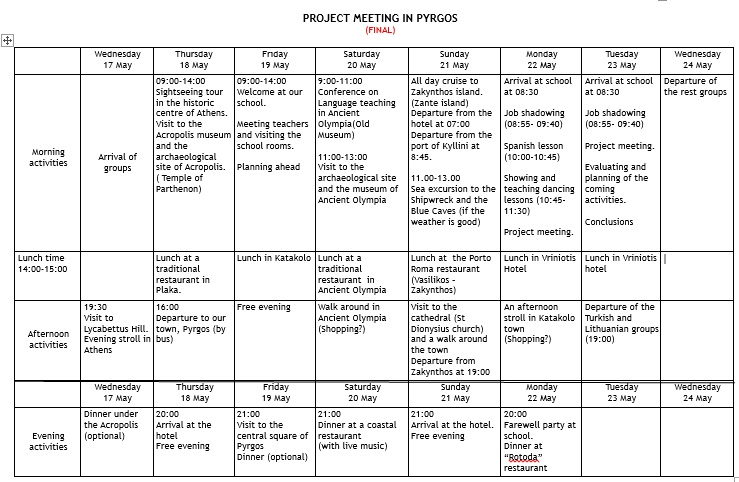
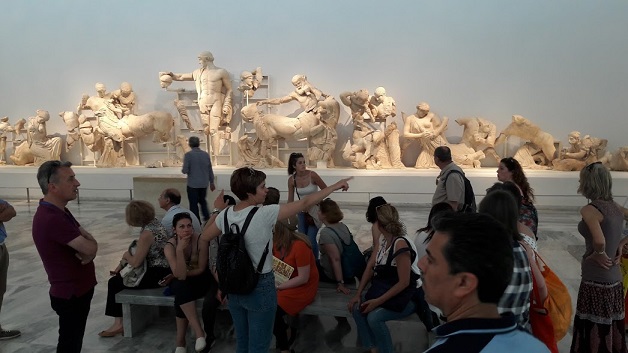

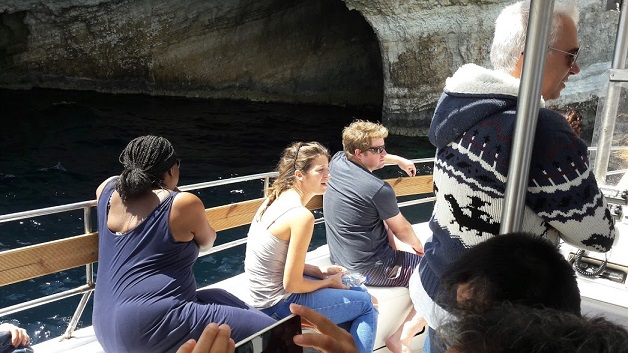
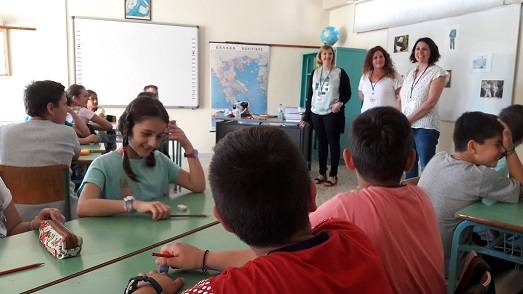
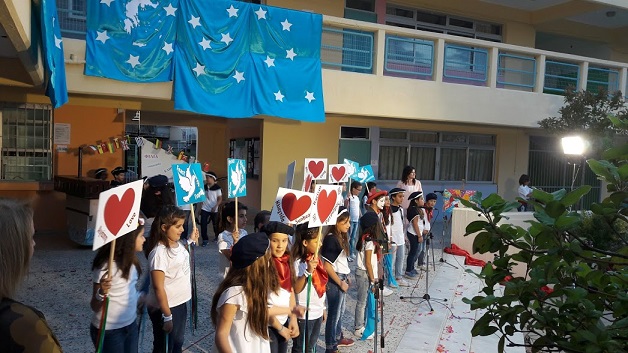


Photos from our partners' visits and activities to our town and our school as well as from the Acropolis, Ancient Olympia and Zakynthos
In the attached article you can see moments of our school's hospitality and interaction between the partners of ERASMUS + project "HERE WE COME".
